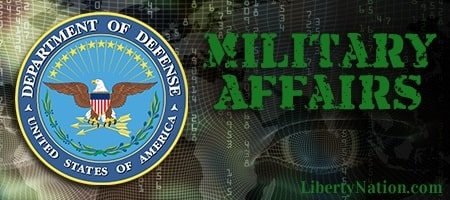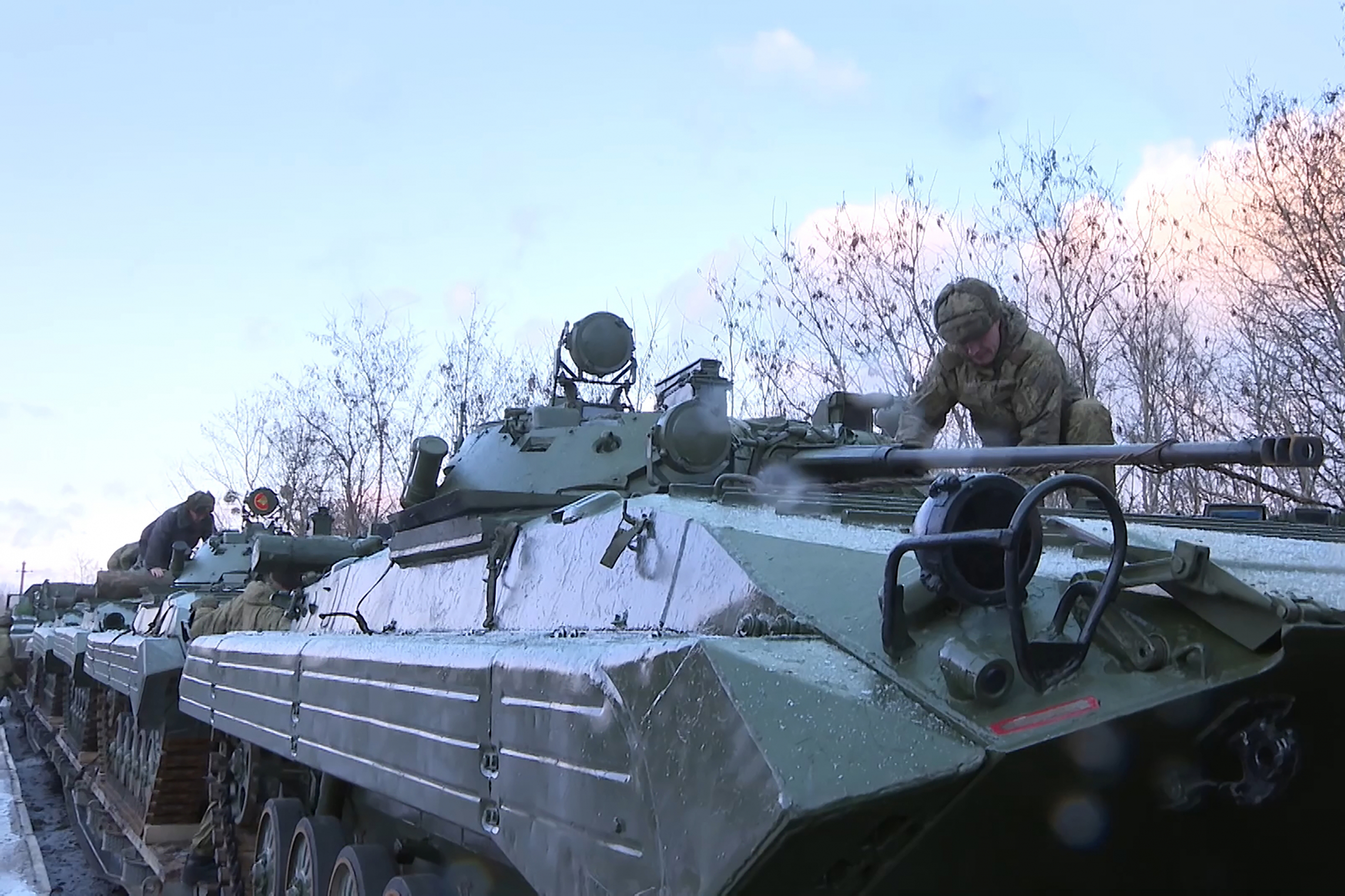During a marathon press conference on January 19, President Joe Biden’s off-the-cuff comments telegraphed the U.S. might temper its sanctions if Russia invades just a little bit of Ukraine. The president’s impromptu foreign policy crafting in front of the world’s media will no doubt come as a surprise to NATO, the European Union, and, most of all, Ukraine.
 ABC News reports that a Ukrainian official in bewilderment said he was “shocked that the U.S. President Biden would distinguish between incursion and invasion …This gives the green light to Putin to enter Ukraine at his pleasure … Kyiv is stunned.” Probably no more stunned than Secretary of State Antony Blinken, who had spent the day in Ukraine’s capital in discussions with President Volodymyr Zelensky on how to prevent such an occurrence.
ABC News reports that a Ukrainian official in bewilderment said he was “shocked that the U.S. President Biden would distinguish between incursion and invasion …This gives the green light to Putin to enter Ukraine at his pleasure … Kyiv is stunned.” Probably no more stunned than Secretary of State Antony Blinken, who had spent the day in Ukraine’s capital in discussions with President Volodymyr Zelensky on how to prevent such an occurrence.
Biden explained that he predicts some kind of an invasion by Kremlin forces. The commander-in-chief mused that Putin “is not certain what he’s going to do. My guess is that he will move in. He has to do something.” Wait, why does he have to do something? Is Putin being forced to gather his 90,000 troops maneuvering just outside the Donbas region in eastern Ukraine and march to Kyiv? As is so often the case when Biden chats informally, it isn’t easy to divine what in the world he’s talking about.
What no one wants is for the U.S. leader’s blue-skying to be self-fulfilling. At one point, in referring to the NATO alliance, Biden noted:
“Big nations can’t bluff, number one. Number two, the idea that we would do anything to split NATO … would be a big mistake. So, the question is, if it’s something significantly short of a significant invasion or … just major military forces coming across. For example, it’s one thing to determine if they continue to use cyber efforts; well, we can respond the same way.”
The listener was left wondering who said anything about big nations bluffing? The president did say Russia would be held accountable but then went into some sort of military incrementalism: “Russia will be held accountable if it invades, and it depends on what it does. It’s one thing if it’s a minor incursion and we end up having a fight about what to do and what to not do, et cetera.” No doubt Ukraine’s citizens are wondering what in the world is packaged in the “et cetera.”

(Photo by Russian Defence MinistryTASS via Getty Images)
When asked the follow-up question about what Biden meant by “minor incursion,” he threw NATO under the bus, giving the impression there was disunity in the alliance as to courses of action, should Moscow invade across Ukraine’s eastern border. Such comments have to be very troubling to the NATO and E.U. diplomats who spent the week of Jan. 10-13 in meetings with their Russian counterparts, ensuring that everyone was on the same page. So, one way the president’s comments can be interpreted is that NATO, the E.U., Ukraine, and probably Russia are on the same page, but only the U.S. is not.
It didn’t take long for Republicans to respond to Biden’s reflections on the future of Russian adventurism and the fate of Ukraine. Senator Rob Portman (R-OH) said, “Any incursion by the Russian military into Ukraine should be viewed as a major incursion because it will destabilize Ukraine and freedom-loving countries in Eastern Europe.”
The White House was once again quick to “clarify” Biden’s remarks, with White House Press Secretary Jen Psaki releasing a short statement that appeared – at least on some level – to undercut the words of the president. She wrote:
“President Biden has been clear with the Russian President: If any Russian military forces move across the Ukrainian border, that’s a renewed invasion, and it will be met with a swift, severe, and united response from the United States and our Allies.”
Secretary Blinken will have an opportunity to iron out all the wrinkles when he meets with his Russian counterpart, foreign minister Sergey Lavrov on Friday, Jan. 21. As The New York Times reports, the meeting will allow the U.S. chief diplomat to explain to Lavrov what the U.S. president really meant to say and “urge Russia to take immediate steps to de-escalate.” Psaki observed, “What Secretary Blinken is going to do is highlight very clearly there is a diplomatic path forward.” One wishes she would have added, “without giving anything away.”
The views expressed are those of the author and not of any other affiliation.
~ Read more from Dave Patterson.



